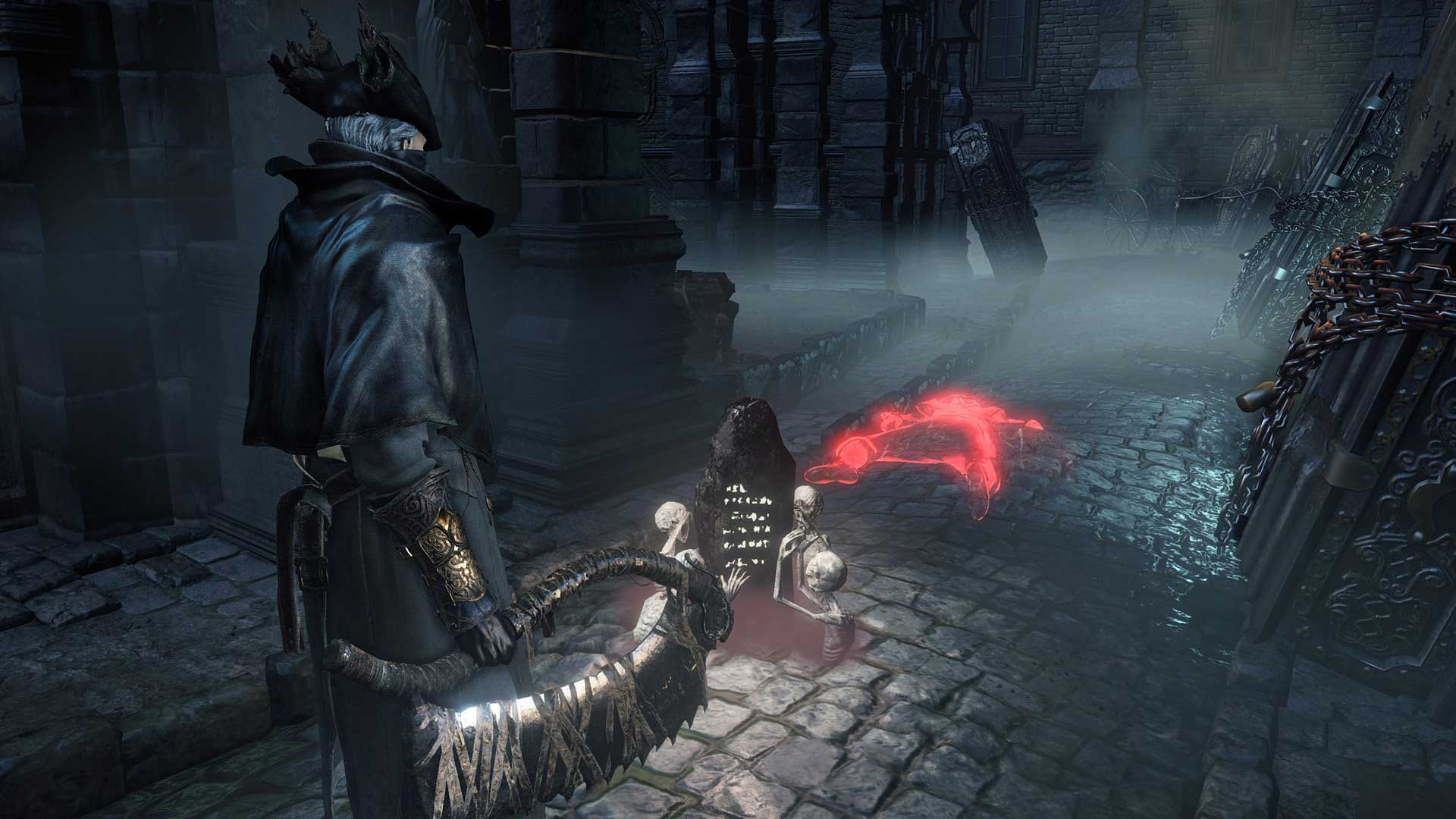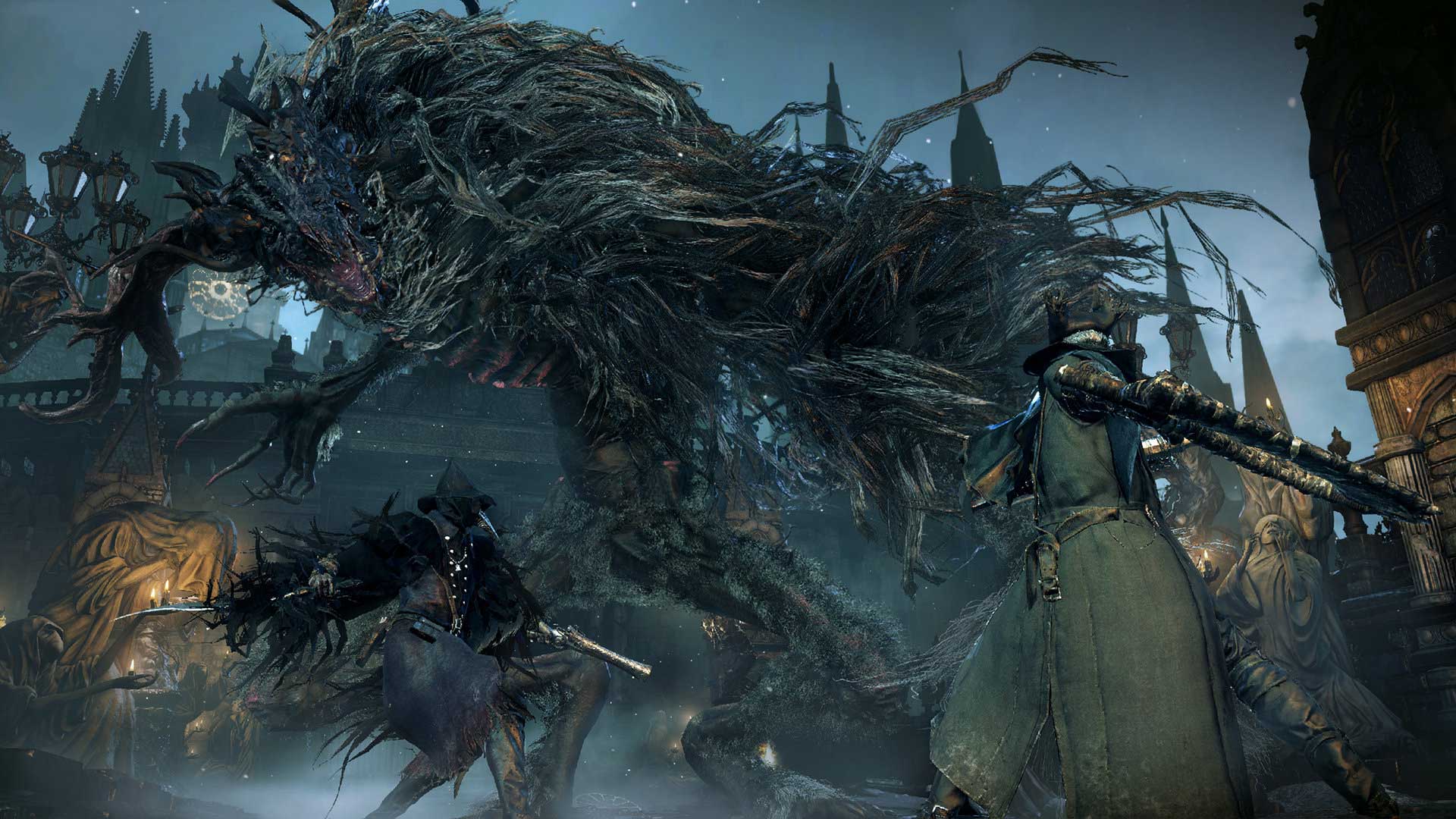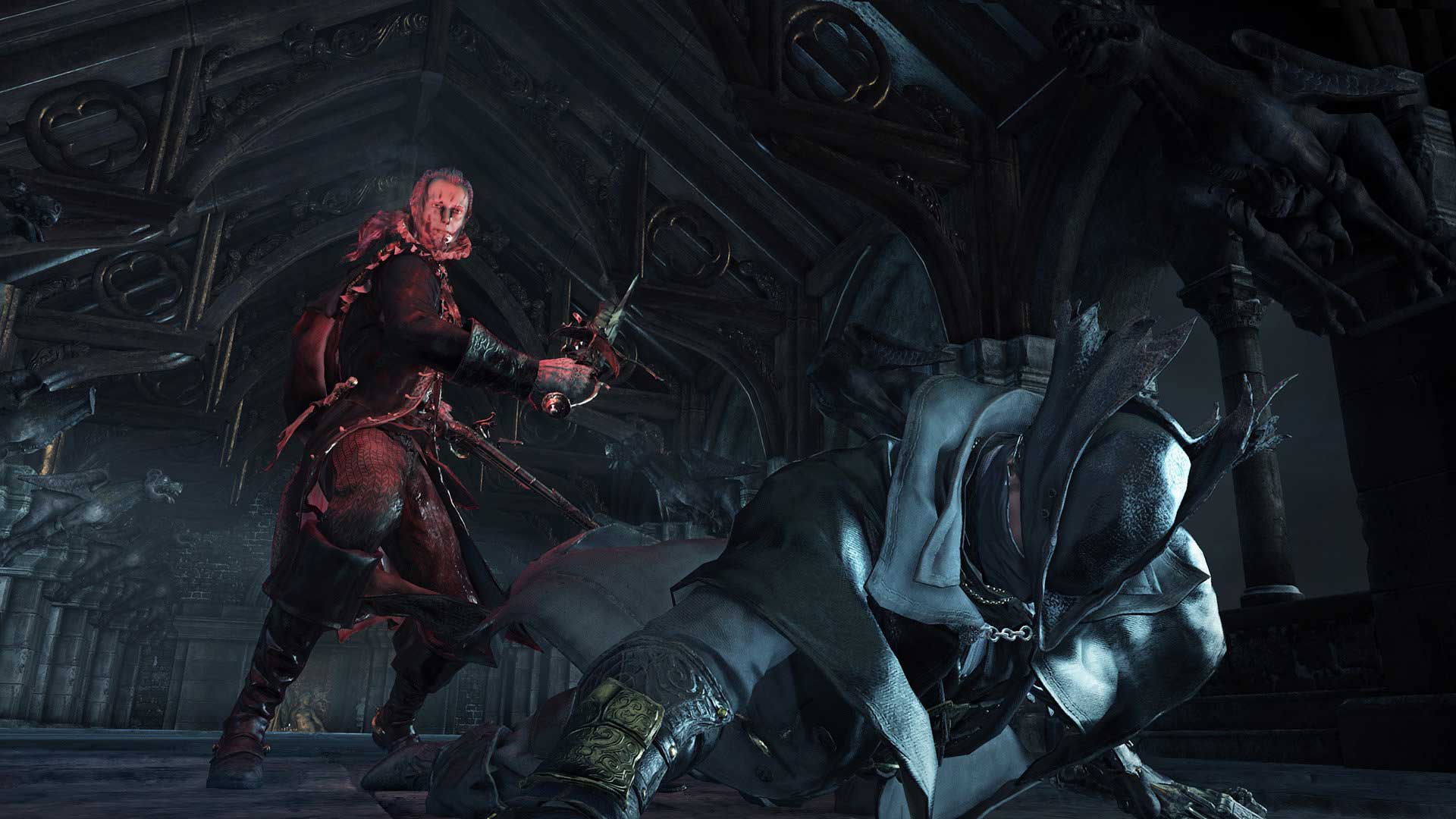Bloodborne draws on the traditions of Demon’s Souls and Dark Souls to offer some unconventional multiplayer options.
Bloodborne guide: how multiplayer works
Bloodborne will offer competitive (PvP) and cooperative (co-op) multiplayer as well as asynchronous network features.
For newcomers to the series these can be a little difficult to grok, and for veterans, there are some subtle differences to how Demon’s Souls and the Dark Souls games worked. So let’s hammer it out.
What do I need to make use of Bloodborne’s multiplayer features?
To access Bloodborne’s online features, you’ll need to install the latest update. There will be a day one update, according to PlayStation.com.
An active PlayStation Plus subscription is required for co-op, PvP, asynchronous network features, and uploading Chalice dungeon data. You do not need a subscription to download Chalice dungeon data, though.
You will need to select “play online” in order to use any multiplayer features.
Cooperative play
The goal of co-op is to defeat the boss of the level being tackled. One player, the host, can invite two guests to help them overcome the boss and the many challenges between the boss and the nearest checkpoint.
To initiate a co-op session, the host uses the Beckoning Bell item, which costs one Insight point. This item is given to you in Hunter’s Dream after you have obtained one Insight point.
You cannot summon a co-op partner in an area where you have already defeated the boss.
Guests can volunteer for co-op with the Small Resonant Bell item. This item can be purchased for one Insight point from the Insight shop in Hunter’s Dream; it’s a bird bath on the upper level, distinct from the Bath Messenger store below. You need to have a minimum of ten Insight points active to use this store.
You cannot volunteer for co-op in a cleared boss arena. You can continue to play as normal while the bell rings, similarly to placing a summon mark in Sould games. However, the bell will keep chiming as you move between areas – with the exception of cleared boss arenas.
Co-op matchmaking is automatic and random, but players can set a password of up to eight letters, and will be matchmade preferentially. Go to Settings – Network – Password Matching to enter your password; this makes for a neat little clan feature, if you fancy it, as well as private sessions.
If you’re having trouble getting a co-op session going with a particular friend, even with a password, try this:
- Both players exit game and restart their PS4, ensuring PSN connection is active before loading the Bloodborne app
- Set password at both ends before starting game
- Both players go to the same location in-game
- Guest player rings Small Resonant Bell first
- Host player rings Beckoning bell second
Matchmaking is also influenced by Faction, and is restricted by level. You can co-op with players within a ten levels and 10% of your own level, rounded up to the nearest whole number. Here’s the formula:
- Maximum co-op partner level:
[your level] + 10 + [your level x 0.1] - Minimum co-op partner level:
[your level] – 10 – [your level x 0.1]
For example, at level 30 you can only play with others whose levels range from 17 to 43. At level 37, you can only play with others whose levels range from 23 to 51.
The consequence of this is that if you significantly over level, you are less likely to find eligible co-op partners, as higher level characters tend to congregate in higher level areas.
If a boss is defeated, the guests are returned to their own world and are rewarded for their efforts with one Insight point.
Guests can leave at any time by using the Silencing Blank item. They will also return to their own game if they or the host are killed. In any of these cases, no reward will be provided.
In some areas you cannot summon or volunteer for co-op until you’ve completed certain tasks. Additionally, in some places you can summon NPCs in place of human co-op partners; look for a Messenger hinting that this is possible, then stand on the Message to summon the NPC.
Using the Beckoning Bell leaves you vulnerable to the appearance of the Sinister Bell-ringer Woman. She opens your region to invasion by other players. See below for details.
You cannot initiate a co-op session in a Chalice Dungeon unless a player is currently playing the exact same Chalice Dungeon, so you will need to upload and share your creation, or both download the same one from the server.
Competitive versus play
PvP is initiated by the guest rather than the host, in an act known as invasion. In some areas of the game, it’s possible hosts may be invaded by two guests at once.
Invasions can only occur in areas where a bell-ringer woman appears, which happens when a potential PvP players uses the Sinister Resonant Bell, a host attempts to initiates a co-op session, or sometimes as a result of events in the game world.
Guests use the Sinister Resonant Bell item to invade. An Insight level of 30 is required. If the guest defeats the host, they are returned to their own game with a reward.
If a guest is defeated or uses the Silencing Blank item, or the host manages to escape the invader and defeat the boss, the guest is returned to their own world without a reward.
You cannot password lock PvP sessions. Matchmaking is influenced by Faction.
Invaders will not appear in areas where the boss has been defeated.
Covenants
Be aware that joining a covenant can affect multiplayer in interesting ways. In particular, the Cainhurst Vilebloods and Executioners have an adversarial relationship, and if they are hooked up as co-op partners, can kill each other. The Host may not be aware that their visitor is an invader rather than a co-op summon, as it’s deliberately not flagged.
Asynchronous network features
Notes: As in Demon’s Souls and Dark Souls, you can leave hints, warnings, jokes and other messages for other players. These messages are then made visible in other players’ games.
Messages are encountered in-game as Messenger creatures on the ground; interact with these to read other players’ messages. To leave a messages, use the Notebook item awarded by a Messenger on your first visit to the Hunter’s Dream hub.
You can rate messages as Fine or Foul. Highly rated messages will last longer and be visible to more players.
Specter: When a player dies, they leave behind a tombstone which, like Notes, appear in other players’ world. Interacting with a tombstone will show you ghosts data of how that player died.
Player Ghosts: You’ll sometimes see ghost data tackling the level around you, independent of tombstones. This shows you near-live data of other players in the same area as you, and you can often learn something from watching them.




Comments
Post a Comment